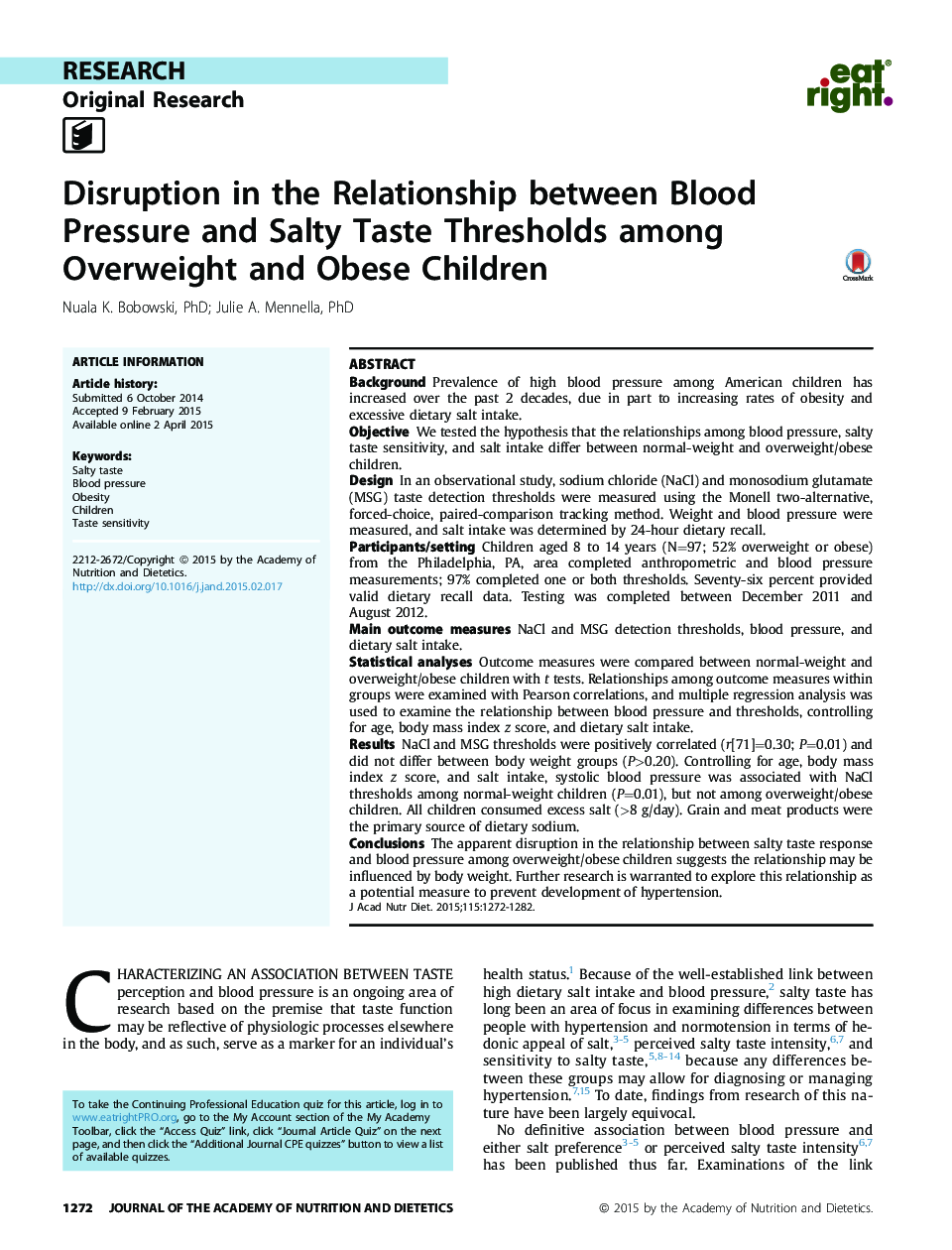| Article ID | Journal | Published Year | Pages | File Type |
|---|---|---|---|---|
| 5869435 | Journal of the Academy of Nutrition and Dietetics | 2015 | 11 Pages |
BackgroundPrevalence of high blood pressure among American children has increased over the past 2 decades, due in part to increasing rates of obesity and excessive dietary salt intake.ObjectiveWe tested the hypothesis that the relationships among blood pressure, salty taste sensitivity, and salt intake differ between normal-weight and overweight/obese children.DesignIn an observational study, sodium chloride (NaCl) and monosodium glutamate (MSG) taste detection thresholds were measured using the Monell two-alternative, forced-choice, paired-comparison tracking method. Weight and blood pressure were measured, and salt intake was determined by 24-hour dietary recall.Participants/settingChildren aged 8 to 14 years (N=97; 52% overweight or obese) from the Philadelphia, PA, area completed anthropometric and blood pressure measurements; 97% completed one or both thresholds. Seventy-six percent provided valid dietary recall data. Testing was completed between December 2011 and August 2012.Main outcome measuresNaCl and MSG detection thresholds, blood pressure, and dietary salt intake.Statistical analysesOutcome measures were compared between normal-weight and overweight/obese children with t tests. Relationships among outcome measures within groups were examined with Pearson correlations, and multiple regression analysis was used to examine the relationship between blood pressure and thresholds, controlling for age, body mass index z score, and dietary salt intake.ResultsNaCl and MSG thresholds were positively correlated (r[71]=0.30; P=0.01) and did not differ between body weight groups (P>0.20). Controlling for age, body mass index z score, and salt intake, systolic blood pressure was associated with NaCl thresholds among normal-weight children (P=0.01), but not among overweight/obese children. All children consumed excess salt (>8 g/day). Grain and meat products were the primary source of dietary sodium.ConclusionsThe apparent disruption in the relationship between salty taste response and blood pressure among overweight/obese children suggests the relationship may be influenced by body weight. Further research is warranted to explore this relationship as a potential measure to prevent development of hypertension.
